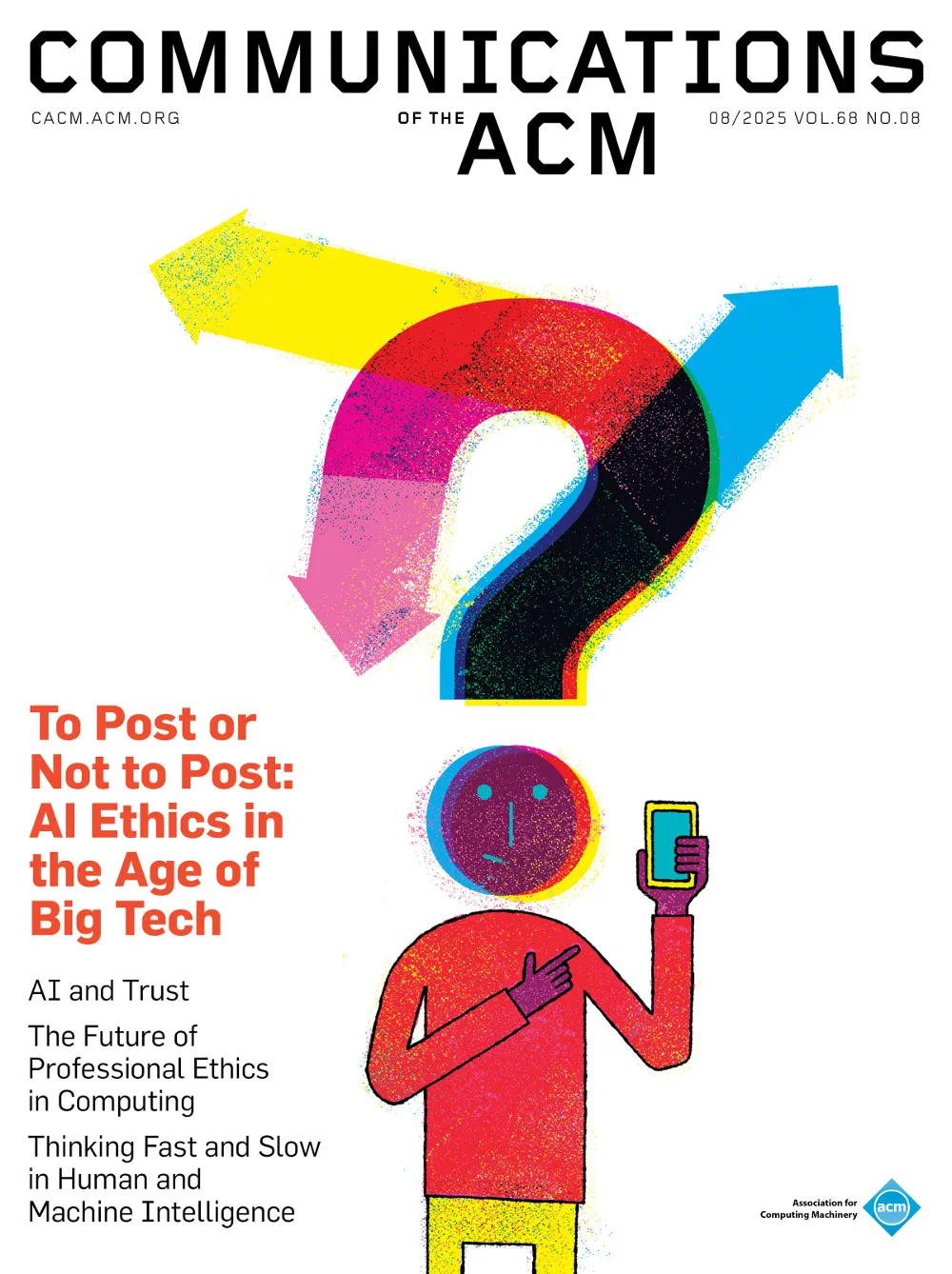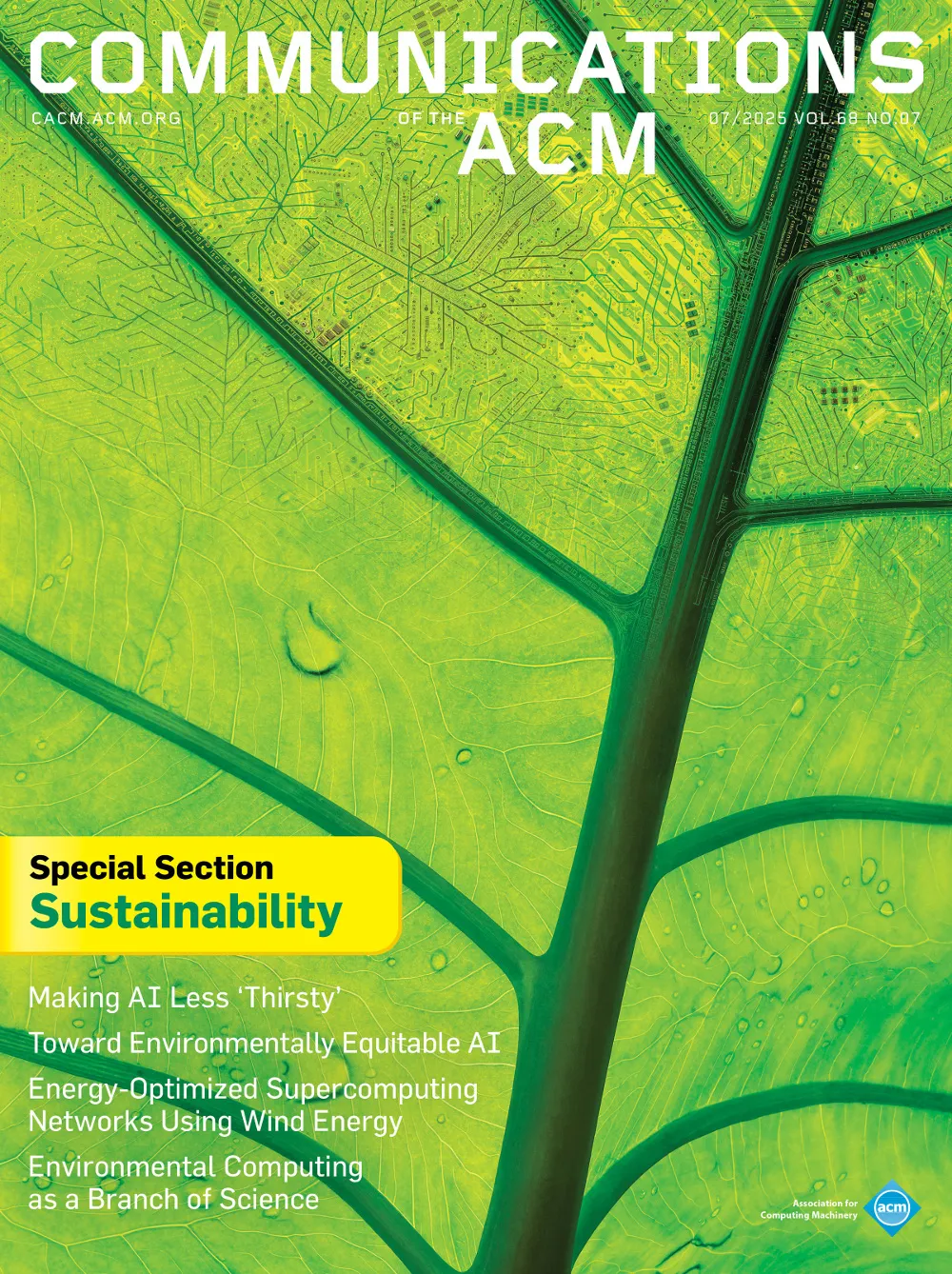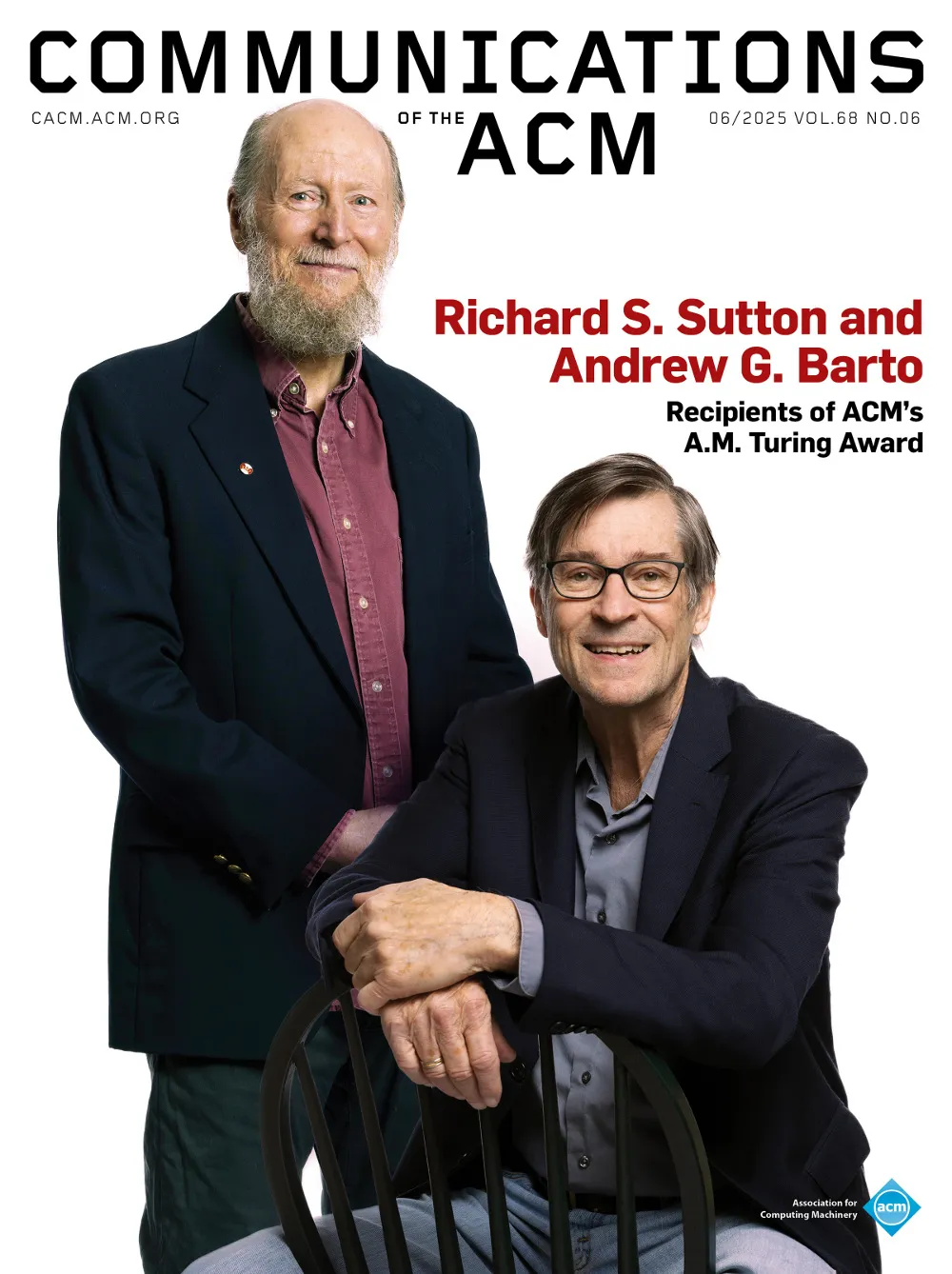Validating Factual Personal Information
February 2024 - Vol. 67 No. 2

Features
Why Bother Localizing Information Technology Products?
Algorithmic Advance: the Group Isomorphism Problem
Autocorrect Is Not: People Are Multilingual and Computer Science Should Be Too
Undergraduate Computer Science Curricula
In software companies a natural conflict exists between security teams and product delivery teams—one's nature is to slow down progress, the other wants to speed it up. The secret is to view security as an enabler, not a hindrance.
In the post-pandemic world, businesses are often handling a combination of on-site and remote workers. To be successful, this requires a new set of management tools.
Inherent Limitations of AI Fairness
AI fairness should not be considered a panacea: It may have the potential to make society more fair than ever, but it needs critical thought and outside help to make it happen.
Computing Education in the Era of Generative AI
Talking about Large Language Models
Anthropomorphism and Human-Robot Interaction
Energy and Emissions of Machine Learning on Smartphones vs. the Cloud
Technical Perspective: How Easy Is It to Describe Hard Polynomials?
"Superpolynomial Lower Bounds Against Low-Depth Algebraic Circuits," by Nutan Limaye et al., achieves a landmark in the larger quest of understanding hardness, dentity testing, and reconstruction.
Superpolynomial Lower Bounds Against Low-Depth Algebraic Circuits
In this paper, we prove the first superpolynomial lower bounds against algebraic circuits of all constant depths over all fields of characteristic 0.
Technical Perspective: Bridging AI with Real-Time Systems
"Taming Algorithmic Priority Inversion in Mission-Critical Perception Pipelines," by Shengzhong Liu et al., proposes a new methodology for overcoming the limitations of current AI frameworks to enable the use of deep neural networks in mission-critical systems.
Taming Algorithmic Priority Inversion in Mission-Critical Perception Pipelines
This paper discusses algorithmic priority inversion in mission-critical machine inference pipelines used in modern neural-network-based perception subsystems and describes a solution to mitigate its effect.



























